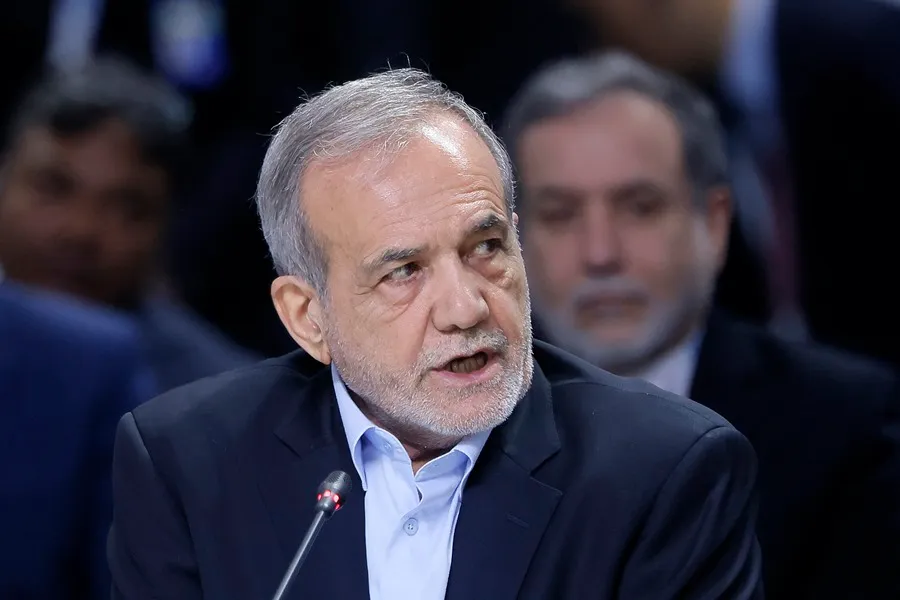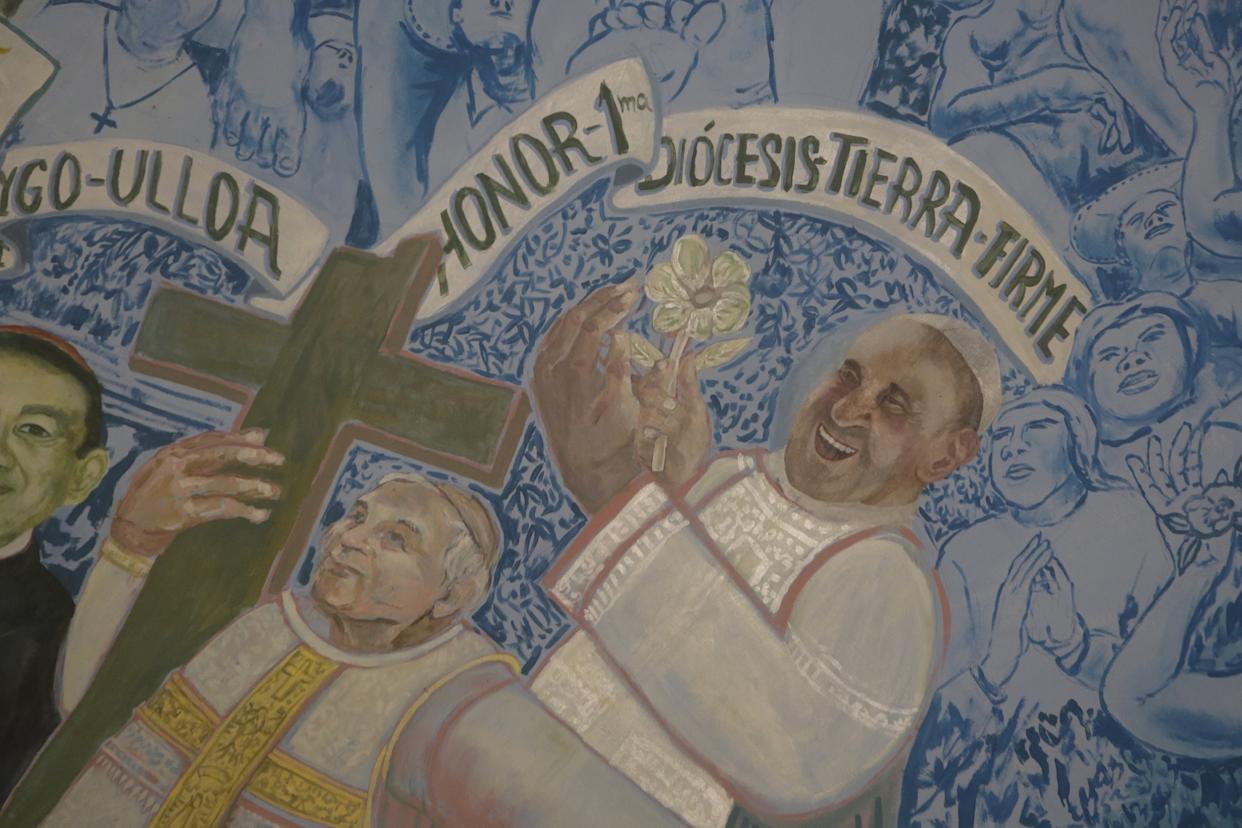International
Russia and Iran will sign a strategic agreement three days before Trump’s inauguration

Russia and Iran will sign a Comprehensive Strategic Partnership Agreement on Friday in the Kremlin, which will include defense cooperation, three days before the investiture of US President Donald Trump.
Russian presidential spokesman, Dmitri Peskov, said that Moscow attaches “great importance” to the signing of the agreement during the first visit to this country of Iranian leader Masud Pezeshkian.
Pezeshkian and Russian President Vladimir Putin have met twice in recent months, the last time last October in Kazan during the BRICS summit, to prepare the document.
Relations between Russia and Iran have strengthened in recent years, especially in the context of the war in Ukraine, where Moscow has the support of Tehran, which would have supplied drones and even missiles to the Russian side, according to the West.
Russians and Iranians are the great losers of the fall of the Syrian regime of Bashar al-Asad, who went into exile last December in Moscow.
With the background of the mutual assistance clause in case of external aggression signed between Russia and North Korea, on the eve of the visit there was speculation about the possibility that Moscow and Tehran seal a similar agreement.
In view of the antagonism between Iran and Russia on the one hand and Israel and the United States on the other, this would put Moscow in a very delicate situation, when the war in Ukraine has not even ended yet.
Both Foreign Ministers, the Russian Sergei Lavrov and the Iranian Abbas Araqchi, admitted that the 47 points of the agreement will include aspects of defense and security, but denied that it is directed against Washington.
“This agreement, like the one we have with North Korea, is not directed against any other country and has a constructive character,” Lavrov said at a press conference.
He stressed that the document “is aimed at strengthening the capacity of Russia and Iran in various parts of the world (…) and guaranteeing a reliable defense potential.”
Meanwhile, his Iranian colleague stressed that the document is not a threat to anyone and only represents “a strengthening of common security”.
“One of the main aspects of the agreement is the strengthening of cooperation on security and defence. Iran and Russia have invaluable experience in the fight against terrorism and extremism,” he said.
And he added that this cooperation is aimed at strengthening regional and global stability, and “responds not only to the interests of both countries, but to the interests of peace throughout the world.”
The signing of the agreement will take place on the eve of the arrival at the White House of Donald Trump, who has Tehran in his sights for his second presidential term.
“The numerous speculations about the choice of the date for the signing of the agreement between Iran and Russia on the eve of Trump’s coming to power only provoke a smile. Have fun the supporters of the conspiracy theory!” said Peskov.
He added that this ceremony “has no influence on the essence of the comprehensive Russian-Iranian agreement.”
In an attempt to reduce tension, Pezeshkian also assured the NBC television channel that his country never tried to assassinate the elected president during the election campaign.
Politicians from both countries commented in recent days that the agreement will facilitate the fight against sanctions and even encouraged other countries to enter a global coalition against the unilateral impositions of the West.
In this regard, Araqchí stressed that it is not “a simple political document, but a roadmap for the future.”
“This is more than an agreement, it is a step towards the creation of a more just and balanced world. Iran and Russia, aware of their historical responsibility, build a new order in which cooperation replaces hegemony and respect for imposition,” he said in an article published by the official agency RIA Novosti.
Last November, Tehran and Moscow connected their banking systems to boost their trade and financial transactions, in a step to address US and European Union sanctions.
Iran has also advocated that the document paves the way for a deepening of energy cooperation, which would include the transfer of technology and the transit of Russian gas to Middle East countries.
International
DHS Secretary Kristi Noem’s Purse Stolen in D.C. Restaurant Heist

The purse of Kristi Noem, Secretary of the Department of Homeland Security, was stolen on Sunday night at a restaurant in Washington, D.C., Fox News Digital confirmed through several agency sources.
The handbag, taken by a white male wearing a mask, reportedly contained $3,000 in cash along with personal documents, including her passport, keys, driver’s license, and DHS badge, according to an agency spokesperson.
“Her entire family was in town, including her children and grandchildren. She was celebrating her retirement by treating them to dinner, activities, and Easter gifts,” the spokesperson added.
Crime continues to be a significant issue in the U.S. capital, particularly theft. However, violent crime reached its lowest level in 30 years last year, according to the Office of the Attorney General at the time.
International
Pope Francis: The Quiet Architect Behind the U.S.-Cuba Thaw

When then-U.S. President Barack Obama and Cuban President Raúl Castro announced the reestablishment of diplomatic relations in December 2014—after decades of hostility—there was a third figure present in both speeches: Pope Francis.
This thaw in U.S.-Cuba relations—later reversed by Donald Trump—was the result of behind-the-scenes negotiations personally encouraged by Pope Francis, who passed away on Monday at the age of 88, just over a year after becoming head of the Catholic Church.
Upon learning the news of the breakthrough, the pontiff humbly stated, “This was made possible thanks to the ambassadors and to diplomacy,” which he called “a noble, very noble job.”
In 2015, months after the announcement, Raúl Castro visited the Vatican and met with the pope. Over time, Castro developed a fondness for Francis that he never had for his predecessors, Benedict XVI and John Paul II. “If the Pope continues talking like this, sooner or later I’ll start praying again and return to the Catholic Church—and I’m not joking,” said the younger Castro, who, like his brother Fidel (1926–2016), had been educated by Jesuits—the same order to which Pope Francis belonged.
Pope Francis visited Cuba later that year. Just days before his arrival, the Cuban government announced the pardon of 3,522 common prisoners as an act of clemency.
While in Havana, the pope met with Fidel Castro, who gave him a first edition of the book Fidel and Religion by Brazilian friar and liberation theologian Frei Betto.
Criticism from the Opposition
Francis’s diplomatic approach also drew criticism from parts of the Cuban opposition. In a 2022 interview with Univision, the pope revealed he had “a human relationship” with Raúl Castro.
International
Dominican Republic Declares Three Days of Mourning for Pope Francis

Dominican Republic President Luis Abinader has declared three days of national mourning starting Tuesday following the death of Pope Francis, who passed away on Monday at the age of 88 in his residence at the Casa Santa Marta.
In an official decree, Abinader highlighted the pope’s legacy “as a global leader who promoted significant reforms within the Catholic Church and was known for his humility, openness to dialogue, and commitment to peace among nations.”
During the mourning period, the national flag will be flown at half-staff at military facilities and public buildings.
According to a statement from the Office of the Presidency, although Pope Francis never visited the Dominican Republic during his papacy, he maintained a close relationship with the country. He expressed solidarity and empathy during difficult times, including offering prayers for the victims of the recent tragedy at a Santo Domingo nightclub on April 8, which claimed 232 lives and left more than 180 injured.
-

 Central America4 days ago
Central America4 days agoNicaraguan Exiles to Mark 7th Anniversary of 2018 Protests with Global Commemorations
-

 International4 days ago
International4 days agoDominican ‘False Hero’ Arrested for Faking Role in Nightclub Collapse That Killed 231
-

 International3 days ago
International3 days agoACLU seeks emergency court order to stop venezuelan deportations under Wartime Law
-

 Central America3 days ago
Central America3 days agoUN complaint filed against Costa Rica over detention of migrant children
-

 International2 days ago
International2 days agoThousands rally nationwide against Trump’s threat to U.S. democracy
-

 Central America1 day ago
Central America1 day agoSenator Van Hollen Meets with Deported MS-13 Member in El Salvador; Trump and Bukele React
-

 International1 day ago
International1 day agoPope Francis Appears for Easter Blessing, Calls for Peace and Religious Freedom
-

 Central America3 hours ago
Central America3 hours agoCardinal Rodríguez to Attend Funeral of Pope Francis: “He Was Very Dear to Me”
-

 International3 hours ago
International3 hours agoDominican Republic Declares Three Days of Mourning for Pope Francis
-

 Central America3 hours ago
Central America3 hours agoNicaragua’s Ortega and Murillo Mourn Pope Francis, Acknowledge ‘Difficult’ Relationship
-

 International3 hours ago
International3 hours agoDHS Secretary Kristi Noem’s Purse Stolen in D.C. Restaurant Heist
-

 International3 hours ago
International3 hours agoPope Francis: The Quiet Architect Behind the U.S.-Cuba Thaw















